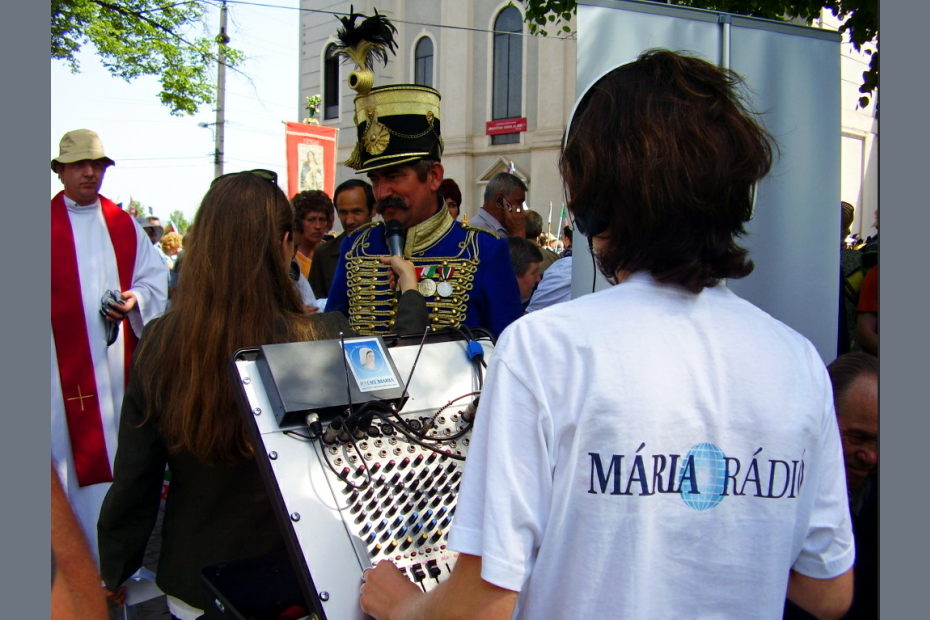Storytelling about saints’ miracles is a growing practice in Romania’s Catholic communities, but devotees of the Virgin Mary are aware that it is also a dangerous habit. Radio Maria Transylvania has grown in popularity since it was founded in 2008. Stepping through the doorway of an urban apartment, one is likely to hear the sound of a group of women praying the Rosary coming from a small radio perched on a kitchen shelf. Radio Maria’s programs are a constant background to everyday activities like cooking and cleaning. Men passing through a rural house’s kitchen will stop, listen to something a priest has said on the radio, offer their own comment, and then pass on out the door. Even elite intellectuals who do not otherwise attend Mass will hear about and discuss Radio Maria’s programs. Doctors, lawyers, and other intellectuals — who otherwise rarely attend Mass and never pray the Rosary — said in interviews that they heard friends and relatives discussing miracles reported on Radio Maria or emergency prayer requests announced on air.
In 2008, Radio Maria broadcast a weekly call-in program for devotees. Volunteers invite callers to ask the Virgin Mary for help. Most callers describe petitions for help. A growing number of callers describe instances in which the Virgin Mary has answered their prayers. In these cases, they describe the problems that were afflicting them and give thanks for the Virgin’s intercession. In addition to phone calls, volunteers read prayer requests that were sent by text message, email, Facebook, and Radio Maria Transylvania’s web site, which has a feedback section devotees use to send their prayers.
Talking about miracles is most popular among volunteers with the new Transylvanian branch of the World Family of Radio Maria, a Catholic media network. Catholics can read about miracles in the World Family of Radio Maria’s monthly newsletters or by listening to the network’s broadcasts. Volunteers say that they are often moved by each other’s stories. They will remember how a friend’s narrative about a miraculous intervention made them feel and recall how others were also moved to tears by a story. They also report that they tell their own stories about their own miracles so that others will turn to the Virgin Mary for help.
Although Catholics report that praying for help is a positive practice that is above reproach, telling stories about miracles divides Catholics. Few people worry about possible negative perceptions if they attend novenas or pray to Saint Anthony for help. Still, devotees rarely tell stories about the saint’s intercessions in groups where they cannot be sure of a welcoming reception. Devotees often say that neighbors might think they are “not normal.” In face-to-face interactions, Catholics can be reluctant to speak about experiences of receiving the Virgin’s help. In interviews, they say that their biggest worry is that that skeptical neighbors or acquaintances will think they are “crazy” or laugh at them for being “silly.”
Catholics will refuse to talk about their experiences of intercession at work or on the street. If someone — a coworker or unwanted family member — walks in while a devotee is speaking, the devotee will stop and wait until the person has left the room. Some devotees will even complain about how rude this person was to have interrupted. The appropriate place to tell a story is most often a private place — a bedroom at home or the kitchen — where one can be assured of being alone or among trusted intimates. The volunteer efforts by women who give their time to Radio Maria are making it more acceptable to tell stories about asking the Virgin Mary for help, but many Catholics in Romania still worry about what others will think if they speak about divine intercessions.
